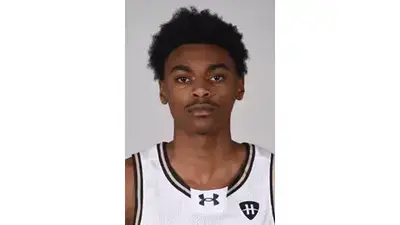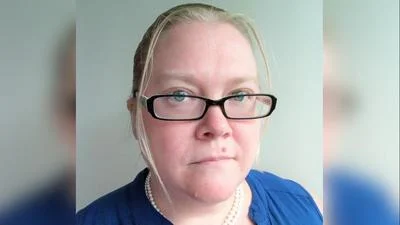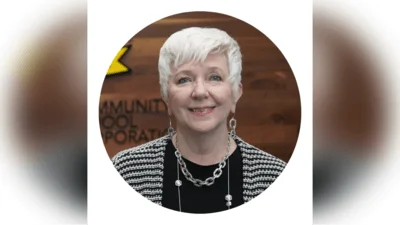Dear diary | Indiana University Health
Dear diary | Indiana University Health
Dear diary: Written words shared from patients, families, in intensive care
He remembers distinctly, the feeling of helplessness. A family member wanted to be in the ICU with her loved one. She was running a risk of exposure to COVID-19 and the patient needed rest.
Steven Zaborowski, a cardiovascular surgical ICU nurse at IU Health Methodist Hospital helped relieve some of those feelings of helplessness. He gave the family member a journal and she began taking notes about her loved one.
“It gave her a purpose and gave her loved one some support outside the room. It helped relieve some stress and gave her a focus,” said Zaborowski. That family member was one of the first to receive what has become known as “The ICU Diaries.”
Through an Evidence-Based Practice (EBP) fellowship Zaborowski has introduced a simple tool to help capture blocks of time that may otherwise be absent from a patient’s memory. Through sedation, changes in mental abilities, or other condition-related issues, many ICU patients become confused and lack awareness of their surroundings. The result is a loss of time - in days and months.
As their lives go on, family members and caregivers help capture those minutes through a written journal.
Zaborowski began his nursing career in 2011 and joined IU health in 2016, working in the cardiovascular surgical intensive care unit at Methodist Hospital. Two years later he joined the team that administers Extracorporeal membrane oxygenation (ECMO). He now serves as ECMO coordinator. Also known as extracorporeal life support, ECMO is used to prolong cardiac and respiratory support.
At the height of COVID, Zaborowski said working with the ECMO team was fast paced but he did have some time to see the hospital through the eyes of patients. “I never thought of doing research but I wanted to improve daily activities,” said Zaborowski. He was also part of the ICU Survivor Clinic - an IU Health Hospital program that helps patients transition to home after they have been discharged. Many patients experience problems with memory, mood, strength, sleep and quality of life after suffering a major surgery or medical issue. The center includes experts from critical care nursing, pharmacy, pulmonary critical care, physical, occupational, and speech therapy, spiritual support, and mindfulness and cognitive behavioral therapy.
“I’ve always taken notes on the patients I care for and as I learned about those patients in ICU who were on sedation and in isolation I recognized the need to help them readjust,” said Zaborowski.
The journals are divided into pages that include such information as the patient’s name, the name they prefer to be called, information about their family, pets, friends, hobbies, and favorite music. There are writing prompts for family members such as: “What brought the patient here?” “Is there a new diagnosis or a medical plan?” and “What are some things I may have heard, smelled or felt today?” Essentially, the hospital caregivers and family members become the patient’s eyes, ears, and voice. There are coloring pages for self-expression and also a full glossary of cardiovascular terms such as “Attending Physician,” “Pulse Oximeter,” and “Vasoactive Drugs.” Since the introduction of the journals, Zaborowski has presented his abstracts at two medical conferences. He has seen first-hand the interest from colleagues and family members. The journals were recently introduced to medical ICU patients at IU Health University Hospital.
The diaries have had a personal impact on Zaborowski. He has been married 10 years to his wife, Ashley, a nurse. They are the parents to two children, ages five and three.
He relates how one young mother came into Methodist Hospital for a C-section. She had severe respiratory complications. After the birth, the baby was removed from mother’s room for the safety of both the mother and the child.
“I gave the grandparents journals and they were able to write updates about the newborn for mom. After she was better she said she felt she didn’t miss as much because her parents documented everything,” said Zaborowski.
“Doing the initial project was a blessing in disguise for me because we had a lot of losses during COVID and it was heartbreaking,” said Zaborowski. “As a father, I saw a lot of fathers leave with losses. That was a driving force to keep me going - to help others hang on to the memories of their loved ones.”
Original source can be found here.





 Alerts Sign-up
Alerts Sign-up